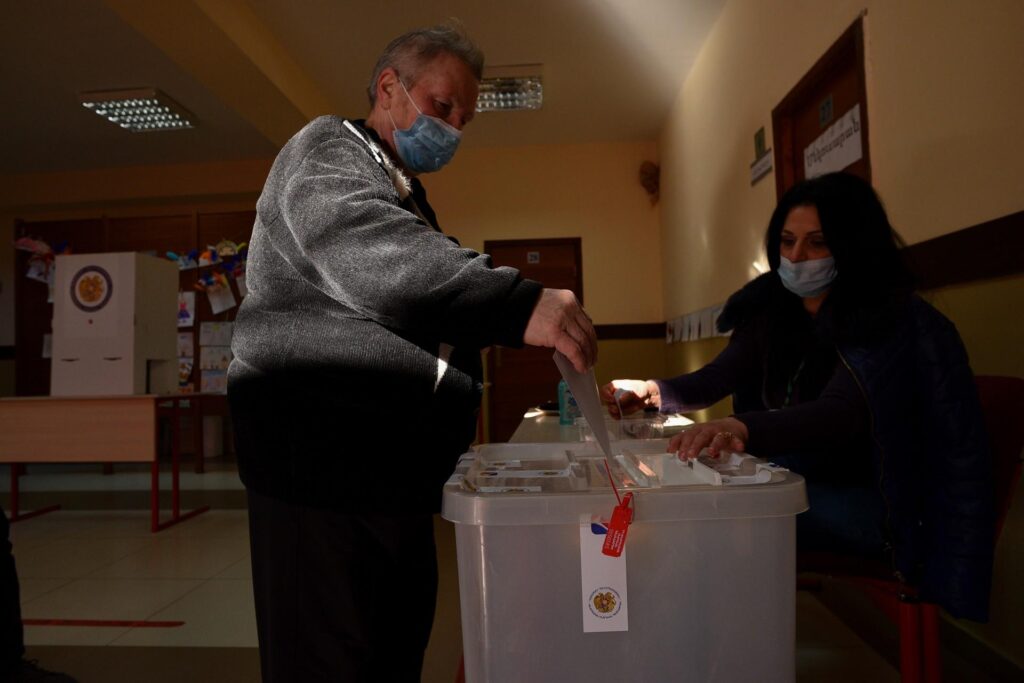In the latest round of municipal elections, Armenia’s ruling Civil Contract party had a landslide victory in the municipalities of Ijevan and Stepanavan while suffering a major defeat in the city of Kapan, a hotspot in recent border tensions with Azerbaijan.
Incumbent Mayoral candidate Gevorg Parsyan’s Shant Alliance easily defeated the Civil Contract municipal slate, garnering 71% of the vote. At over 64%, turnout in Kapan was considerably higher than in any other major municipality in recent local elections and only 9% lower than the turnout during the 20 June parliamentary elections.
Parsyan was first elected mayor in 2018, in an election that found the political newcomer defeating a Civil Contract candidate only several months after the revolution that brought Prime Minister Nikol Pashinyan and his party to power.
Since Armenia’s defeat in the Second Nagorno-Karabakh War last autumn, Parsyan has emerged as one of the main critics of the Nikol Pashinyan administration and its handling of an ongoing border dispute with Azerbaijan, which has included the repeated closure of a key road that connects Kapan and much of Syunik province to the rest of the country.
[Read more: Azerbaijan sets up customs checkpoints on key Armenia road]
The ruling party’s municipal slate fared much better in Nikol Pashinyan’s hometown of Ijevan, located in Tavush province. There, the Civil Contract slate garnered 84% of the vote against a paltry 16% from the slate supported by the opposition Armenian Revolutionary Federation party.
Civil Contract had a similar result in the town of Stepanavan, located in Lori province, taking 80% of the vote. The slates supported by the opposition Prosperous Armenia party and the Armenian National Congress party received 16% and 4%, respectively.
In both towns, turnout was relatively low. In Ijevan, only 37% of eligible voters showed up to the polls, a decrease of almost 40%. In Stepanavan the turnout was 38% , a decrease of 20% compared to the parliamentary elections.
Election observers did not note any serious violations on voting day, however, in the run-up to the election, there were reports of the apparent use of administrative resources in Kapan. These included a sudden increase in the social assistance allocated to the city and Syunik province days before the election as well as disproportionately positive coverage of Civil Contract by Armenia’s Public Broadcaster.
In a previous set of municipal elections, held in mid-October, Civil Contract faced defeat in several major municipalities throughout the country, including Gyumri, the second-largest city in the country.
[Read more: Armenia's ruling party faces defeat in limited municipal elections]
The next round of municipal elections, concerning yet another series of municipalities in Armenia, is expected for 5 December.




 15 November 2021
15 November 2021



